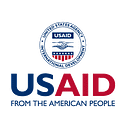Cambodia Begins Journey to Sustainable Community Responses to HIV/AIDS
Communes in Battambang Province are among first to devote local funds to HIV
Three years ago, Cambodia’s Battambang Province joined the country’s Fast Track Cities Initiative, making it one of the first areas in the country to commit to using its local budget to help end AIDS by 2025. The commitment meant that local authorities like Sokvanaroth Hem, a commune (sub-district) chief in Battambang Province, would now be responsible for devoting a portion of their local budget to HIV activities.
“In the past years, we never had specific activities and budget lines to support people living with HIV in our commune investment plan,” Mr. Hem said. The change is part of an ongoing process by the national government to decentralize planning, budgeting, and implementation of health programs.
HIV prevalence in Battambang Province is among the highest in Cambodia. The province is also home to several groups at especially high risk of infection: men who have sex with men, transgender persons, entertainment workers, people who use/inject drugs, and prisoners. Ensuring that their needs are funded through local budgets is key to the success of both the national decentralization effort and the country’s 95–95–95 target (95 percent of people with HIV aware of their status, 95 percent of those with HIV on treatment, and 95 percent of those on treatment having their viral load suppressed, by 2025).
Strengthening skills and motivation
To prepare Battambang Province for its new fiscal responsibility, the USAID Local Health System Sustainability Project (LHSS) collaborated with Cambodia’s National AIDS Authority to conduct trainings on the roles and responsibilities of the Commune AIDS Committee and how to create a tailored plan and budget for local HIV activities. Authorities from 10 communes participated.
The training increased participants’ abilities and motivation to strengthen their planning and budgeting roles, Mr. Hem said. As a result, nine of the ten participating sub-districts now include HIV activities in their local budgets.
“After our colleagues had attended the LHSS workshops on HIV in commune investment plans, we were able to plan and allocate about 4 million riels ($1,000) for HIV activities, including home visits for people living with HIV and some food support to the affected family,” said Mr. Hem.
For the next commune investment plan, Mr. Hem expects the HIV budget will increase to 5 million riels ($1,250), plus an additional one million riels ($250) for prevention activities.
But challenges remain to providing more robust funding for the HIV response in his commune, Mr. Hem said.
“Our support is small — some rice and cooked fish cans, just for those who are HIV positive, but not enough to support testing for those who are at risk, and not enough to support treatment for those who are positive. We need more resources, both financial and human, and technical knowledge to design and plan appropriate HIV prevention activities in our commune.”
To further strengthen local ownership and sustainability of the HIV response in Battambang Province, LHSS will continue supporting the National AIDS Authority in strengthening not only local authorities’ knowledge of planning and budgeting for HIV activities, but also their ability to tailor interventions and engage communities — including people living with HIV, at-risk groups, and civil society organizations — in a manner that expands access to HIV testing, quality treatment, and care.
